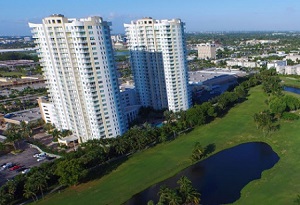
Some condominiums charge tenants a fee to move in and move out because ultimately our staff spends a lot of time processing the application, background check and on the day of move in and out. There is guidance on what is allowed to occur as in a condominium (unlike a homeowners association) there is a statute which places a strict cap on what can be charged in connection with a lease. Specifically, Florida Statutes section 718.112 provides “No charge shall be made by the association or anybody thereof in connection with the sale, mortgage, lease, sublease or other transfer of a unit unless the association is required to approve such transfer and a fee for such approval is provided for in the declaration, articles, or bylaws. Any such fee may be preset, but in no event may such fee exceed $100 per applicant other than husband/wife or parent/dependent child, which are considered one applicant. However, if the lease or sublease is a renewal of a lease or sublease with the same lessee or sublessee, no charge shall be made.”
In other words, if you want the ability to charge anything in connection with a lease, your declaration, articles or bylaws first must require your association to approve prospective tenants. If your documents do not require this, you technically should not be charging anything.
If your documents do allow you to approve a lease, the fee is generally supposed to cover your expenses for the background check and minor administrative costs and is capped at $100 per applicant.
 If your association is charging a fee other than the $100 per applicant referenced above, then it would most likely be impermissible. There are some exceptions, and you should check with your legal counsel to determine if you qualify to charge certain fees like “elevator reservation fees,” but the general rule is that these additional charges are in excess of what is expressly permitted by 718.112 above.
If your association is charging a fee other than the $100 per applicant referenced above, then it would most likely be impermissible. There are some exceptions, and you should check with your legal counsel to determine if you qualify to charge certain fees like “elevator reservation fees,” but the general rule is that these additional charges are in excess of what is expressly permitted by 718.112 above.
If your documents provide for a security deposit, the statute does provide that you could collect a security deposit for damage to the common elements and association property during the term of the lease. This can be a helpful tool, but we are also finding condominium associations frustrated when trying to return the deposit if the tenants are foreign or do not provide any forwarding address and forget about the deposit.

